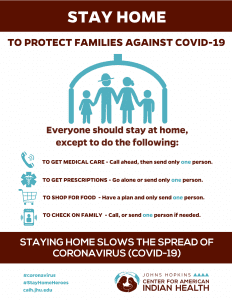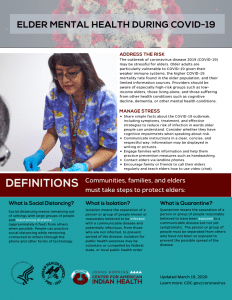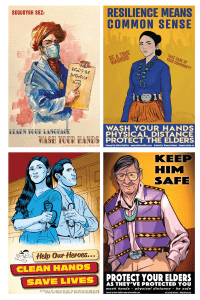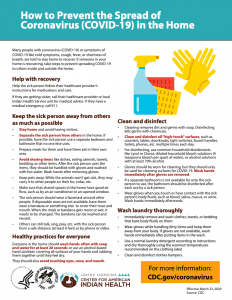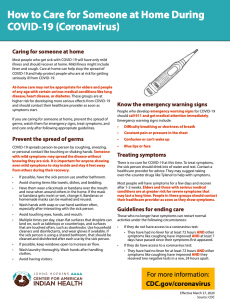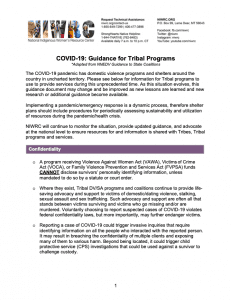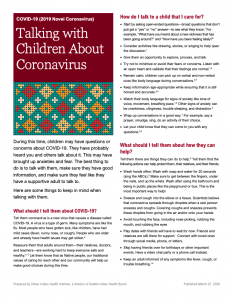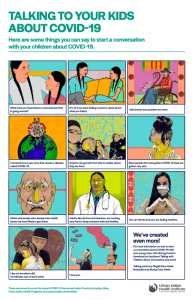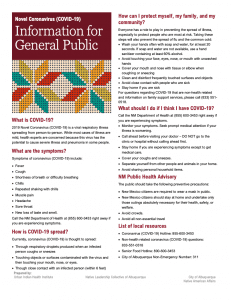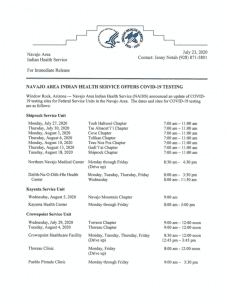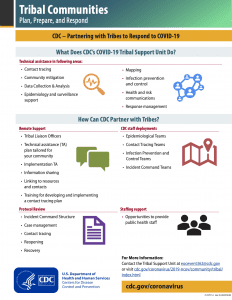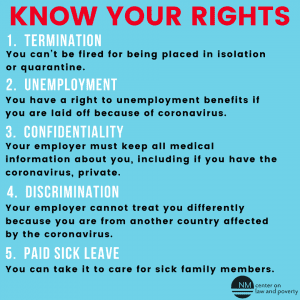With the ongoing COVID-19 pandemic, impacting Black, Indigenous, and Communities of Color the deepest, relatives who have been infected with the virus that causes COVID-19 can experience long-term effects from their infection, known as post-COVID conditions (PCC) or long COVID. Post-COVID-19 syndrome involves a variety of new, returning, or ongoing symptoms that people experience more than four weeks after getting COVID-19. In some people, post-COVID-19 syndrome lasts months or years or causes disability. Research suggests that “between one month and one year after having COVID-19, 1 in 5 people ages 18 to 64 has at least one medical condition that might be due to COVID-19. Among people age 65 and older, 1 in 4 has at least one medical condition that might be due to COVID-19” (Mayo Clinic).
Disability justice movements continue to push for intersectional approaches to meet the needs of our relatives with disabilities, which are connected to race, class, gender, etc. Therefore, this Disability Pride Month, CSVANW uplifts the disability justice movement to amplify awareness of what disability looks like, relatives living with Long-COVID, stories, and experiences, and information on how to manage and accommodate safe spaces for relatives living with a disability.
In the ongoing COVID-19 pandemic, we find ourselves navigating a reality in which we are advocating and enforcing safety protocols and accessibility for our disabled relatives in the community. In the beginning, the COVID-19 pandemic prevented us from coming together, but we are now in the phase where we know, and where we are continuing to learn, how to manage, protect and accommodate ourselves, our loved ones, our disabled relatives, and the community when it comes to reconnecting and gathering back together in community. Building a safe space for community is love. Encouraging mask-wearing, testing for COVID before and after coming together, monitoring the air quality in closed spaces, encouraging outdoor events, making spaces accessible for disabled relatives, having air purifiers in closed spaces/indoors, etc. Such safety measure and protocols not only enforces safety but shows love for your community.
Together, we can keep our communities safe! We pray for your strong hearts and want you to know we are in this together and we will continuously learn new lessons into the future to build back the healthy communities we all know are possible. Community safety is love.
#DisabilityPrideMonth
#CommunitySafetyIsLove
Relatives living with Long-COVID
The COVID-19 pandemic has created a larger depth for health disparities among our native communities. As we see a rise in Covid-19 cases globally, it is important to understand how Covid-19 has impacted the health among our community members. Long Covid is a health concern for our communities as it is not a health crisis that is talked about enough, and is underreported and understudied. CSVANW uplifts the disability justice moment to amplify awareness of what disability looks like, relatives living with Long-COVID, stories and experience, and information on how to manage and accommodate safe spaces for relatives living with disability. We would like to hear from you how we can continue to accommodate safe spaces in regards to COVID, your experience with Long Covid and how disability has impacted your life. We are eager to learn about your experiences as to compile this vital information to inform our communities, health care systems, and to support and uplift each other who are navigating this disabling illness.
The words of our ancestors carry love. More importantly they carry power. Translating our Native languages into english can sometimes lose meaning…but what is NEVER lost in translation is LOVE . And in this moment, where our communities are being disproportionately affected by COVID-19, our resilience must continue to grow from LOVE.
Stay home relatives…we love you too much to lose any of you.
Download the memes below, share on your social media platform and tag CSVANW.
Our CSVANW executive director, Angel Charley, joined a live panel discussion on April 22, 2020 about how the COVID-19 pandemic is affecting our New Mexico communities. Thank you to Sister Bar and Dukes Up for hosting this critical conversation. And thank you to the folxs from New Mexico Center on Law & Poverty, UNMH Intensive Care, and ACLU of New Mexico for joining the conversation.
Tribal
Resources:
Resources in Response to the Coronavirus (COVID-19)
Native Lead Covid-19 Resources:
Articles:
New Mexico COVID-19 Cases
The new 109 positive tests include clusters at San Felipe and Zia Pueblos (4/7/2020)
Federal
Coronavirus (COVID-19) Funeral Assistance
State – New Mexico
Resources:
Best Practices in Teleadvocacy
How to Prevent “Zoom-Bombing”: A Guide
Survivor-Driven, Trauma-Informed, Mobile Advocacy
Tips for Remote Counseling and Advocacy
Best Practices When Using Mobile Devices for Advocacy
How to Operate as a Remote Workplace During a Public Health Crisis
Digital Written Consent to Share Information
Video Conferencing & Digital Communication Platforms: Comparison Chart
Using Technology to Communicate with Survivors During a Public Health Crisis









